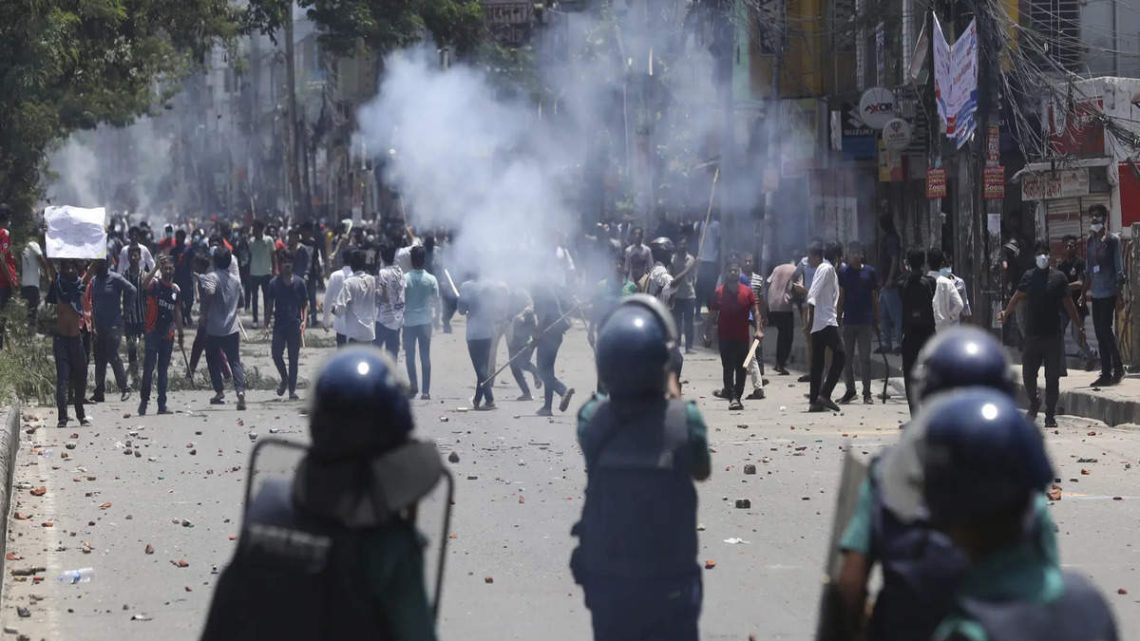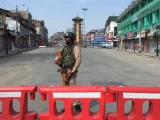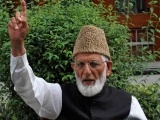
Bangladesh Crisis: Controversies Over Minority Violence
August 29, 2024After Sheikh Hasina’s ouster, reports of violence against minorities in Bangladesh emerged. Chief of Army Staff General Waqar dismissed these as exaggerated, noting only 31 politically motivated incidents and asserting that the situation is stabilizing. The political crisis in Bangladesh, sparked by the ouster of Sheikh Hasina, has led to a series of complex challenges for the interim government now led by Dr. Yunus. The downfall of Hasina’s regime was largely driven by widespread student protests, which condemned her administration for its authoritarianism, human rights abuses, and suppression of political dissent. However, the transition to the new government has been far from smooth. Controversies have emerged, particularly concerning reports of violence against minorities, including attacks on Hindu temples. These incidents, while serious, are widely believed to be politically motivated and grossly exaggerated by certain interest groups seeking to undermine Dr. Yunus and his team. The intent behind these actions appears to be the discrediting of the new administration by exploiting communal tensions and creating unrest. In response to these allegations, Bangladesh’s Chief of Army Staff, General Waker-uz-Zaman, stated that the reported violence against minorities has been grossly exaggerated. He clarified that only 30 cases (Looting, fire target minorities) were reported nationwide, all of which were politically motivated. General Waqar also emphasized that the situation is now stabilizing and gradually returning to normal. Additionally, India is found using social media to spread disinformation and exaggerate reports of violence against minorities in Bangladesh. This unethical practice has contributed to further unrest and violence, exacerbating the already troubled situation. Such actions are considered crimes against humanity, as they fuel conflict and suffering. The broader context of Bangladesh’s political dynamics is crucial in understanding these developments. Misinformation and propaganda are frequently used as tools to sway public opinion and discredit political rivals. The interim government faces significant challenges in maintaining stability, addressing these allegations, and working towards restoring democratic governance while upholding human rights. The broader context of Bangladesh’s political dynamics is crucial in understanding these developments. Misinformation and propaganda are frequently used as tools to sway public opinion and discredit political rivals. The interim government faces significant challenges in maintaining stability, addressing these allegations, and working towards restoring democratic governance while upholding human rights. The situation in Bangladesh is further complicated by several ongoing issues:
Extrajudicial Killings and Torture: Security forces, particularly the Rapid Action Battalion (RAB), have been implicated in numerous deaths, often under the guise of crossfire. Torture during arrests and interrogations remains a severe problem, with little accountability.
Targeted Attacks on Minorities: After the recent elections, Hindu families were attacked, allegedly by certain interest groups, revealing deep-seated communal tensions worsened by political rivalries. The government’s failure to protect these communities is a significant concern.
Political Violence: The country’s political environment is highly charged, with violence often politically motivated. Opposition supporters and minorities have been frequent targets, exacerbating tensions.
Impunity and Lack of Accountability: The previous government’s lack of thorough investigation and prosecution of human rights violations, including those by security forces, has perpetuated a culture of impunity and ongoing violence. These issues not only threaten the rule of law but also risk destabilizing the country if not addressed comprehensively and transparently. The involvement of certain interest groups in orchestrating violence to discredit the interim government underscores the need for international scrutiny and pressure to ensure justice and the protection of human rights in Bangladesh.

